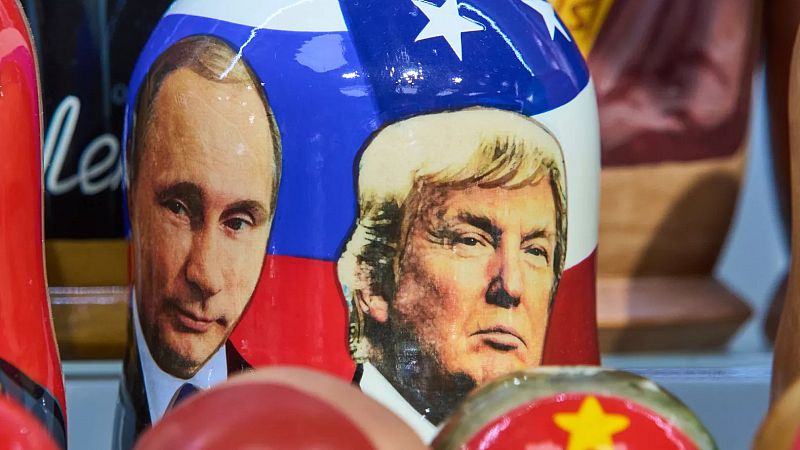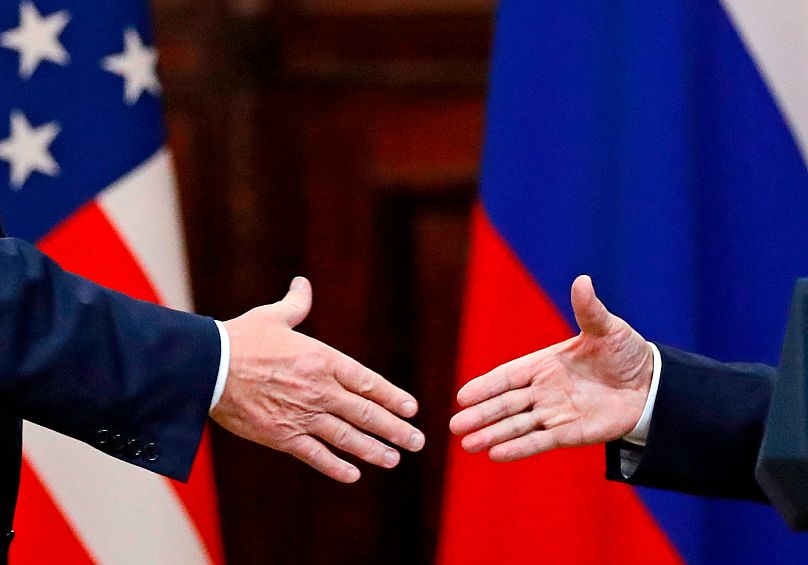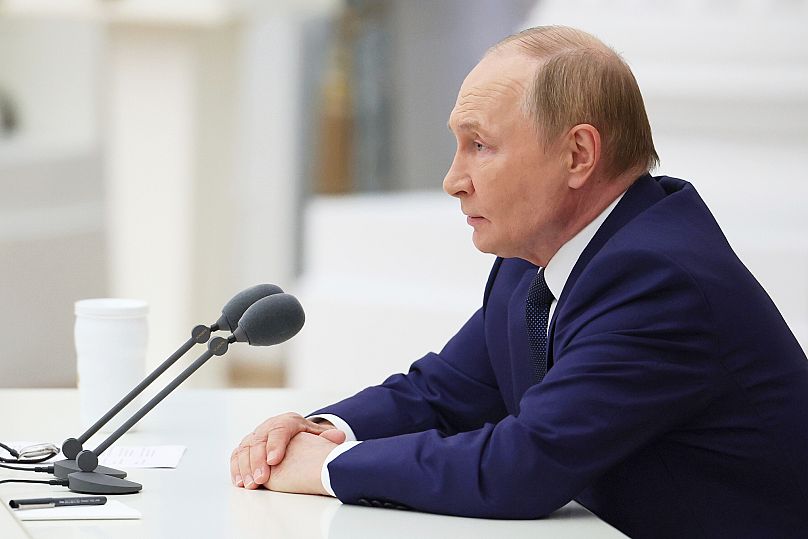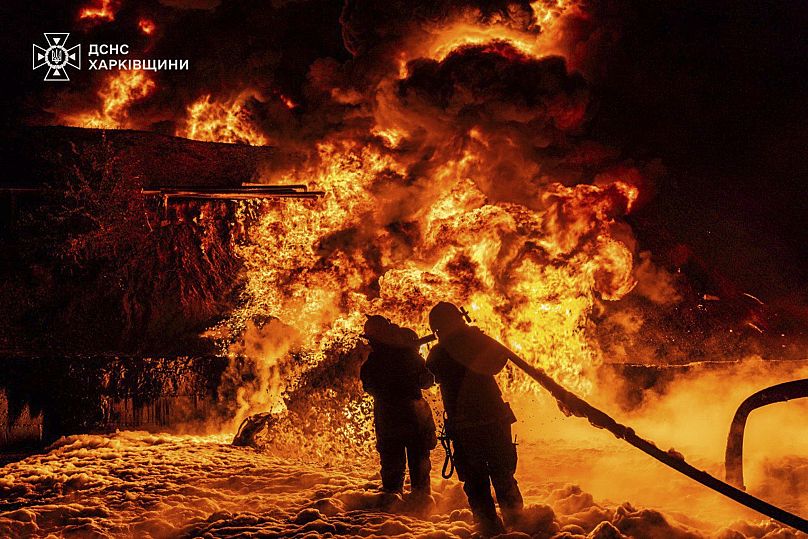Trump-Putin summit in Alaska: One meeting, different goals

As the countdown is on for the much-anticipated Alaska one-on-one meeting between Donald Trump and Vladimir Putin, Moscow and Washington have been sending conflicting messages on what are their main goals and expectations for the summit.
The US president said he believes that Vladimir Putin is heading to the meeting wanting to make a deal to end Moscow's war in Ukraine.
"I believe now he's convinced that he's going to make a deal. He's going to make a deal. I think he's going to. And we're going to find out — I'm going to know very quickly," Trump said during an appearance on Fox News Radio.
This isn't the first time Trump has made such a statement. He repeatedly stated that Putin wants to put an end to his full-scale invasion of Ukraine or at least that he can convince or even push Putin to make some sort of a deal.
These statements have not materialised, at least not until now. Every time Trump mentioned a possible ceasefire, Russia continued or even intensified its frontline assaults and aerial attacks against Ukraine.
The US president's rhetoric has somehow changed over the past few days, becoming a little less convincing and a lot less optimistic.
Earlier this week the White House officials even called the Alaska meeting merely a "listening exercise."
Over the past few days the US president himself played it down, describing the Friday summit as "setting the table for the second meeting," purportedly between Zelenskyy and Putin in the presence of Trump and possibly European leaders.
"We are going to have the second meeting if the first one goes well," Trump said, adding that he would prefer the second meeting between Putin and Zelenskyy to take place "almost immediately."
Asked if he believed he could convince Putin to stop targeting civilians in Ukraine, Trump replied: "I guess the answer to that is no, because I've had this conversation (with Putin)."
And yet Trump still says he believes some sort of a deal will be signed in Alaska.
What does Moscow want?
But for Moscow the agenda seems different.
Kremlin spokesperson Dmitry Peskov said no documents are expected to be signed during the Alaska summit.
Although Peskov said it would be a "mistake" to predict the outcome of Friday talks, he stressed that there are no plans for Russian President Vladimir Putin and US President Donald Trump to formalise any agreements.
"President Putin and President Trump are ready to talk and will discuss the most difficult issues," he added.
Putin's aide Yuri Ushakov, who is part of the Russian delegation at the Friday meeting, said the central topic of the Alaska summit is "settlement" of Russia's war in Ukraine, though economic cooperation and global security will also be discussed.
Putin himself held a special meeting on Thursday morning with the Russian authorities saying the US administration is "making sufficiently energetic and sincere efforts to end the hostilities, resolve the crisis, and reach agreements that are in the interests of all parties involved in this conflict."
Pointing at the Kremlin's main goal of restarting and possibly even normalising Russia's relations with the US - which for the Kremlin have nothing to do with Ukraine - Putin said the meeting is important "In order to create long-term conditions for peace between our countries, in Europe, and in the world as a whole."
The Russian president did not mention any steps towards ending his war against Ukraine and instead focused on Moscow's contact with Washington, in an effort to position the Friday meeting as a summit of the world's superpowers.
The US-based Institute for Study of War assesses that the Kremlin is using the Alaska summit to portray Russia as a world power equal to the United States and to position Putin as an equal to Trump.
On Wednesday, leading Russian negotiator and Russian Direct Investment Fund CEO Kirill Dmitriev alluded to the 1945 Yalta Conference between the United States, the United Kingdom, and the Soviet Union, claiming that the Yalta conference "won World War II" and that Putin and Trump will similarly "prevent World War III."
The Russia-installed head of the annexed Crimea region, Sergei Aksyonov, claimed that Trump should visit the region in order to agree to a "new Yalta peace."
Russian state-controlled media have also been pushing the Yalta summit comparison, claiming that "people who have a real influence on global processes" will be at the table in Alaska.
Donald Trump rejected the claims that a one-on-one meeting with the US president could be perceived as a reward for Vladimir Putin.
But even if the meeting doesn't go well and there is no second summit with the leaders of Ukraine and Europe, Putin will already have emerged from diplomatic isolation for the first time since the beginning of his full-scale invasion of Ukraine.
Today




